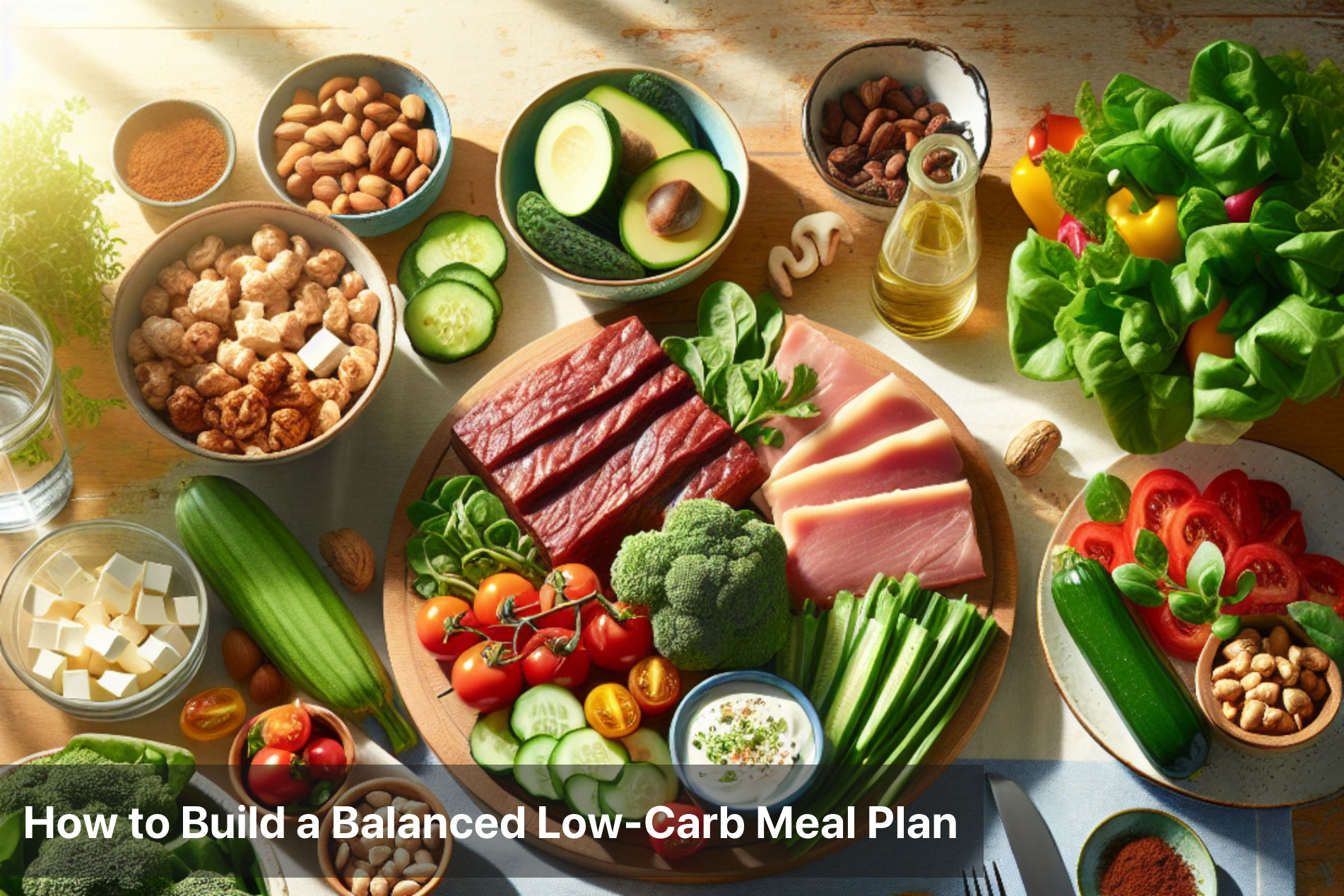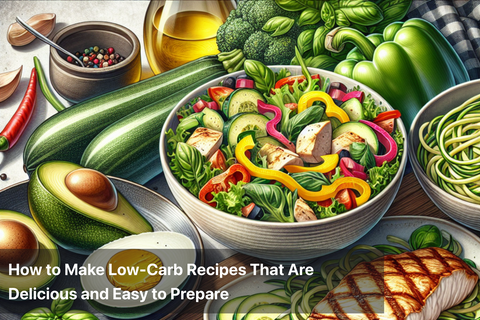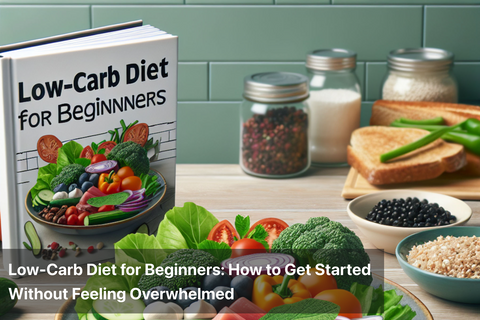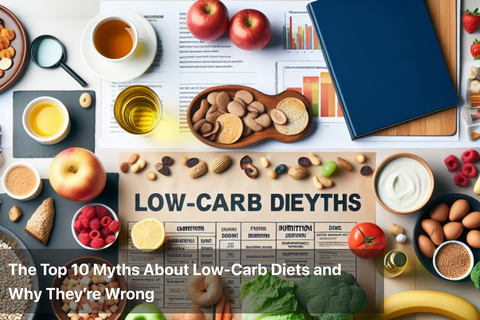
How to Build a Balanced Low-Carb Meal Plan
Building a healthy lifestyle starts with what’s on the plate. A low-carb meal plan isn’t just about cutting down bread or skipping sweets—it’s about eating smarter, balancing nutrients, and choosing wholesome, satisfying foods that support energy, weight management, and long-term health. Whether the goal is weight loss, better blood sugar control, or simply improved wellness, a thoughtfully designed low-carb meal plan can deliver lasting results without feeling restrictive.
The key is creating meals that are nutrient-dense, filling, and tailored to personal needs—all while keeping carbohydrates in check.

Understanding the Basics of Low-Carb Eating
A low-carb diet typically limits carbohydrate intake to 50–150 grams per day, depending on the individual’s goals, activity level, and metabolic health. Unlike extremely low-carb or ketogenic diets, a balanced low-carb approach allows for flexibility and a broader variety of foods, making it easier to maintain.
Macronutrient breakdown for a balanced low-carb meal usually includes:
-
Protein: Moderate to high (20–30% of daily intake)
-
Fats: Moderate to high (40–60% of daily intake)
-
Carbohydrates: Low to moderate (10–30% of daily intake)
A good plan focuses not just on reducing carbs, but on increasing the quality of foods across all macronutrient groups.
Step 1: Set Your Daily Carb Range
The first step in building a low-carb meal plan is defining the daily carb limit based on your objective:
-
Weight loss or blood sugar control: 50–100 grams/day
-
Maintenance or active lifestyle: 100–150 grams/day
Distribute carbohydrates evenly throughout meals and snacks to avoid blood sugar spikes and promote stable energy.
Step 2: Choose High-Quality Proteins
Protein helps preserve muscle mass, supports metabolism, and keeps hunger in check. Include a good source of protein in every meal.
Great protein options include:
-
Eggs
-
Chicken, turkey, and lean meats
-
Fish (especially fatty fish like salmon, sardines, and mackerel)
-
Paneer and tofu
-
Greek yogurt (unsweetened)
-
Protein powders (if needed for supplementation)
Aim for 20–30 grams of protein per meal, depending on your dietary needs and goals.
Step 3: Add Healthy Fats for Satiety
Fats provide energy, support hormone health, and help with the absorption of fat-soluble vitamins (A, D, E, and K). On a low-carb diet, fat becomes a key energy source.
Healthy fats to include:
-
Olive oil, coconut oil, ghee
-
Avocados
-
Nuts and seeds (almonds, chia, flaxseeds, walnuts)
-
Nut butters (without added sugar)
-
Full-fat dairy in moderation
Avoid trans fats and heavily processed seed oils. Use fats to cook, dress salads, or blend into smoothies to increase flavor and satiety.
Step 4: Prioritize Non-Starchy Vegetables
Vegetables add volume, fiber, antioxidants, and essential vitamins without adding too many carbs. They are a core part of any low-carb meal plan.
Top low-carb vegetables:
-
Spinach, kale, lettuce, and arugula
-
Broccoli, cauliflower, and cabbage
-
Zucchini, bell peppers, cucumbers
-
Mushrooms, eggplant, and green beans
Fill at least half your plate with vegetables for better digestion, fullness, and nutrient density.
Step 5: Include Smart Carbs (in Moderation)
Not all carbs are equal. Whole, unprocessed carbs can still have a place in a low-carb meal plan—especially for active individuals or during higher-carb days.
Smart carb sources (used in small amounts):
-
Sweet potatoes
-
Quinoa
-
Lentils and chickpeas
-
Berries (strawberries, blueberries, raspberries)
-
Apples and pears (in moderation)
These can be included around workouts or earlier in the day to support energy and recovery.
Step 6: Stay Hydrated and Mindful of Electrolytes
Low-carb diets can have a diuretic effect, especially in the early stages. This makes hydration and electrolyte intake critical.
Tips:
-
Drink at least 2–3 liters of water per day
-
Add a pinch of pink salt to water if feeling fatigued
-
Include potassium-rich foods like spinach and avocados
-
Consider magnesium supplements or magnesium-rich foods like pumpkin seeds
Proper hydration improves digestion, mental clarity, and energy.
Sample Low-Carb Meal Plan (Approx. 80–100g carbs/day)
|
Meal |
Menu |
|---|---|
|
Breakfast |
- Scrambled eggs with spinach and feta |
|
Snack |
- Handful of almonds or walnuts |
|
Lunch |
- Grilled chicken salad with olive oil dressing |
|
Snack |
- Greek yogurt (unsweetened) with chia seeds and a few berries |
|
Dinner |
- Grilled paneer or salmon |
Common Mistakes to Avoid
-
Eating too little fat: Fat is a primary energy source in a low-carb plan. Avoid going too low.
-
Neglecting fiber: Fiber keeps digestion smooth. Choose fibrous vegetables and seeds.
-
Relying on packaged “low-carb” snacks: Many are filled with artificial ingredients or hidden sugars.
-
Skipping meals: Leads to overeating later. Focus on balanced, satisfying meals.
-
Not adjusting carbs based on activity level: On workout days, a slight increase in carbs can improve performance and recovery.

Sustainable Tips for Long-Term Success
-
Plan meals in advance to reduce decision fatigue
-
Keep your kitchen stocked with low-carb essentials
-
Batch-cook proteins and veggies for easy assembly
-
Focus on food quality over calorie quantity
-
Stay flexible—include occasional treats without guilt
-
Listen to your body’s hunger and fullness cues
Summary
Building a balanced low-carb meal plan involves more than just removing bread or sugar—it’s about creating meals that nourish, energize, and satisfy. Prioritizing high-quality proteins, healthy fats, fibrous vegetables, and smart carbs ensures that nutritional needs are met while keeping carb intake low.
A well-structured low-carb lifestyle can lead to better weight management, stable blood sugar, reduced cravings, and sustained energy. With mindful planning and real, whole ingredients, low-carb eating becomes not just effective—but enjoyable and sustainable.
This Blog post is an initiative by Lo! Foods, to provide accurate and Nutritionist / Doctor approved information related to Health. Lo! Foods is India's leading brand for Everyday Functional Foods. Foods designed for specific Health conditions or Needs. Lo! Foods also runs India's largest range of Low Carb Healthy Cloud Kitchens, under the brand names of Lo!, ProteinChef, ATH (All Things Healthy) and DiabeSmart.













Leave a comment
Your email address will not be published.